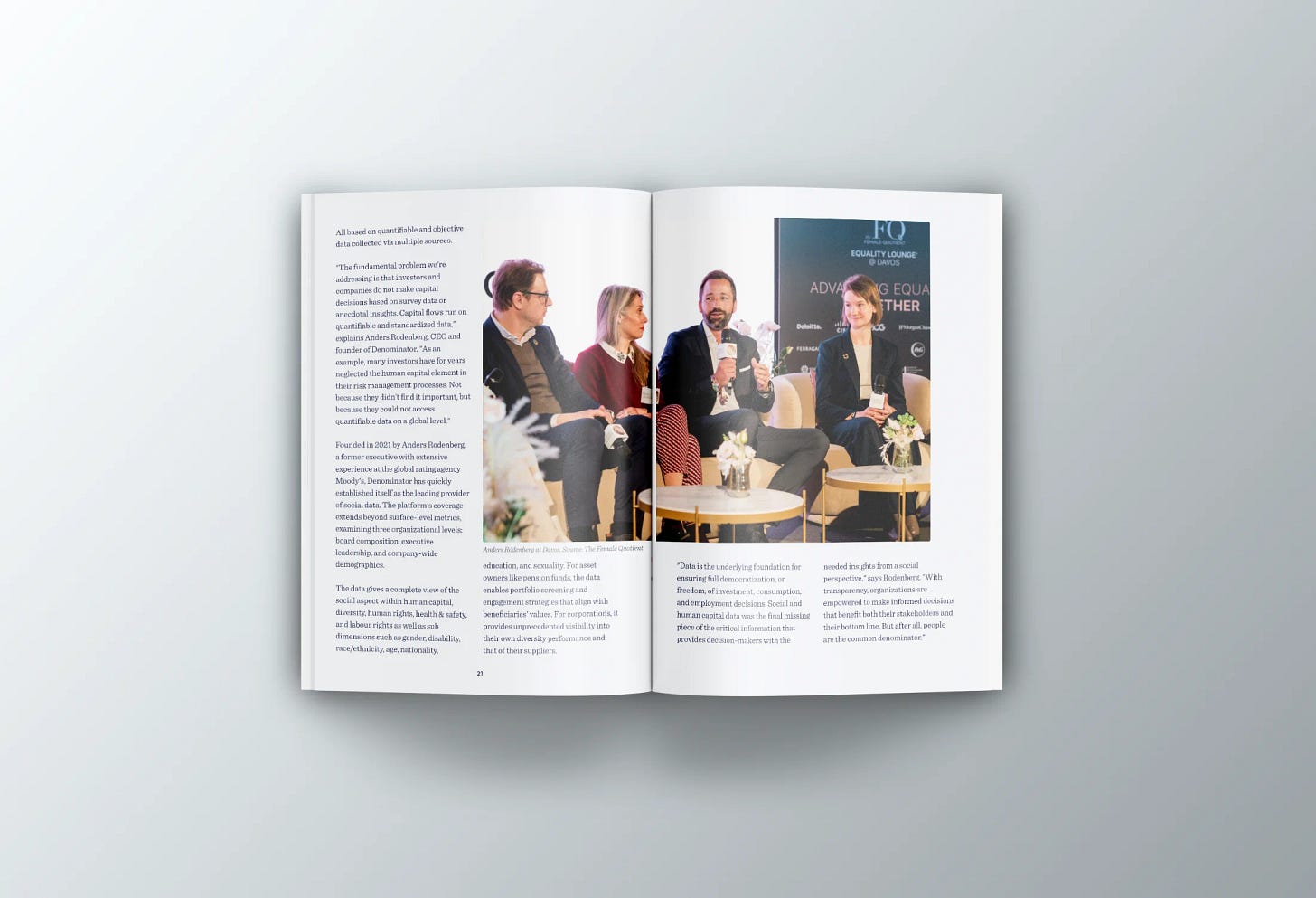Hi there,
Welcome to the Scale Capital newsletter.
Going forward, we’ll be sharing perspective pieces directly from our team — alongside our regular updates. Inside, you’ll find the latest from our portfolio, team highlights, media coverage, and upcoming events where you can connect with us. Plus, our usual roundup of curated picks – reads, podcasts, or similar we’re finding valuable right now.
Dive in below!
by Judith Schrader, Investment Associate
The Age of Climate Adaptation
This year, neighborhoods in Texas disappeared beneath waist-deep floodwaters. In Delhi, schools shut down under 52°C heat. A heat dome suffocated the Midwest. Flash floods tore through Germany’s Ahr valley. A Swiss village vanished under glacier rubble. And in Florida, flood insurance is vanishing faster than sea ice
By the time it hits the news, it’s already old news.
That’s what I keep thinking as I scroll through headlines. The climate is escalating, but our collective response still feels like it’s on a delay loop.
As investors we spend a lot of time thinking about what’s next. But right now, climate adaptation isn’t what’s next – it’s what’s needed right now. For me, this isn’t just an investment thesis, it’s also personal. I care about where technology meets infrastructure, but I care just as much about where it meets people’s safety, dignity, and everyday quality of life. And climate adaptation is one of the clearest intersections of both.
A Quick Reality Check
The World Meteorological Organization just released data showing that Asia is warming almost twice as fast as the global average. We’re now seeing weather as systemic risk, not seasonal inconvenience. In other words, climate has now become a supply chain variable.
We’ve spent decades framing climate action around mitigation like cutting emissions, shiftting to renewables, and capturing carbon. All work that indeed matters a lot. But the uncomfortable truth is that much of the damage is already done. Global temperatures have already risen. Systems have already destabilized. Urban drainage built for 20th-century rainfall averages can’t manage 21st-century storms. Agricultural calendars are being scrambled, insurance models are breaking and risk is moving faster than regulation. What we’re experiencing now is the beginning of a new operating reality.
Adaptation has long been treated as a secondary track, as something to consider once we’ve done the real work of prevention, but that mindset no longer holds. We need both, in parallel.
The Quiet Shift in the Market
What’s unfolding for us right now is how adaptation is moving from resilience reports and UN panels into product roadmaps, procurement cycles, and infrastructure budgets. And while it may not dominate headlines, it’s where some of the most meaningful climate tech is starting to take shape.
In cities, we’re seeing growing demand for tools that can model localized flood risk in real-time, especially in places with terrain complexity and older drainage systems. Meanwhile, investors and insurers are asking new questions: not just “Is this region warming?” but “How many days will this logistics hub be underwater by 2030?” That’s a different level of precision.
For founders, beyond engineering, currently reality is also a design challenge and a systems challenge — building tools that not only forecast risk but fit into the realities of civil engineering, insurance pricing, and local government workflows.
New Builders for a Climate Adaptation
We’re seeing a new wave of founders building exactly for this moment — translating climate volatility into decision-ready tools. From wildfire detection networks to hyper-local flood modeling, these solutions are moving beyond research labs and into the hands of planners, insurers, and engineers.
In Germany, Dryad is deploying ultra-early wildfire detection sensors across forests to catch ignition events before they escalate. Mitiga Solutions is helping banks and cities quantify exposure to physical climate risk, while Tomorrow.io is enabling real-time weather infrastructure for global supply chains.
Others are building platforms that plug directly into the workflows of civil engineers, real estate planners, and governments. Telescope, for instance, supports climate-resilient infrastructure planning and real estate portfolio analysis, while 7Analytics offers geospatial models that assess flood risk down to the street level. These technically sophisticated tools are designed to be adopted, with APIs and interfaces built for the realities of procurement, planning, and compliance.
The Adoption
While climate adaptation tools are scaling, what’s missing is widespread uptake where it matters most — in local governments, utilities, insurers, and procurement frameworks. At its core, this is about today’s operations: managing assets, protecting people, and allocating capital under growing pressure from climate extremes.
That’s where the window of opportunity is widening. For founders building adaptable systems, and for institutions ready to modernize how they prepare. It’s also where I’ll be focusing, both as an investor and as someone who believes adaptation is a social infrastructure. The next few years will be shaped by those who figure out how to close the adoption gap – not just with better models, but with better delivery.
Portfolio News
MeetingPackage has been chosen by Accor — one of the largest hotel groups in the world, with brands like Fairmont, Raffles and Novotel — as its exclusive global partner for automating group bookings and meeting room reservations across 5,600+ hotels in 110 countries. Read the coverage at Skift Meetings.
Denominator has been named one of the world’s most innovative tech companies on the 2025 DataTech50 list by FinTech Global.
7Analytics received four industry awards: The People’s Choice Award at Plug and Play Insurtech Europe, the DIAmond Award at ITC Europe, Pitch Competition award at ClimateTech Connect, and Innovators Award - “Collaboration Champion” with Fremtind at insureNXT.
All Gravy was selected as the first-ever Euro Seed 50 – a new list from Creandum that's recognising the most promising early-stage startups across Europe.
Team News & Activities
Elias Agardh joined Scale as an Investment Analyst Intern, and over summer will focus on supporting our efforts in Sweden. Get to know Elias by reading this Q&A.
In May, we participated in Fundraising Masterclass hosted by Copenhagen Fintech, where Joachim Schelde shared his takes on how do you make your tech startup VC-ready, and when is VC actually the right fit.
In Media
Terkel Douglas shared his perspective in Impact Loop on how new tariffs, climate volatility, and political uncertainty are making the road to the US more complex – but certainly not closed.
Should Europe shut the door to the US? We don’t believe so. Lars Jensen, our founding partner, explains why. Read in Børsen (Danish), Dagens Industri (Swedish), or Shifter (Norwegian).
At TechSavvy Media, Terkel Douglas unpacked what global uncertainty means for early-stage tech companies and how to respond.
Reads from Scale
Denominator: Enabling the S in ESG by Frederik Barsøe
Read on how Denominator is bringing clarity to the most overlooked dimension of ESG: the social factor
Q2 Recap: Navigating the Shifting Terrain of GenAI by Lars Jensen
7th edition of our quarterly Generative AI recap where Scale’s Partner is taking a look at what’s happening in this incredibly important and ever-changing space.
Curated Picks
Explore Curated Picks by Elias Agardh, Investment Analyst at Scale:
The Cold Start Problem by Andrew Chen
Explains how to start/scale network effects and why some networks thrive while others fail.20VC Podcast – Airwallex CEO & Co-Founder, Jack Zhang: The Angel That Turned $1M into $1BN
Great episode with an inspiring founding story.
Lenny’s Podcast – Lessons from working with 600+ YC startups | Gustaf Alströmer
Valuable episode where YC Group Partner, Gustaf Alströmer, gives lots of useful and practical advice.
Let’s Connect at the Upcoming Events
Tech BBQ, Copenhagen, Denmark, August 26–28, 2025
The Drop, Malmö, Sweden, September 16–18, 2025
Bits & Pretzels, Munich, Germany, September 29.– October 1, 2025
Feel free to forward this newsletter to anyone who might enjoy it. Wishing you a wonderful summer break — we’ll be back in your inbox at the end of Q3!






